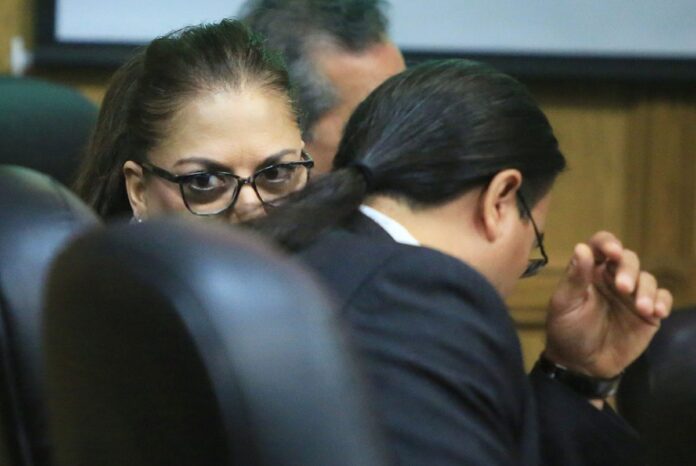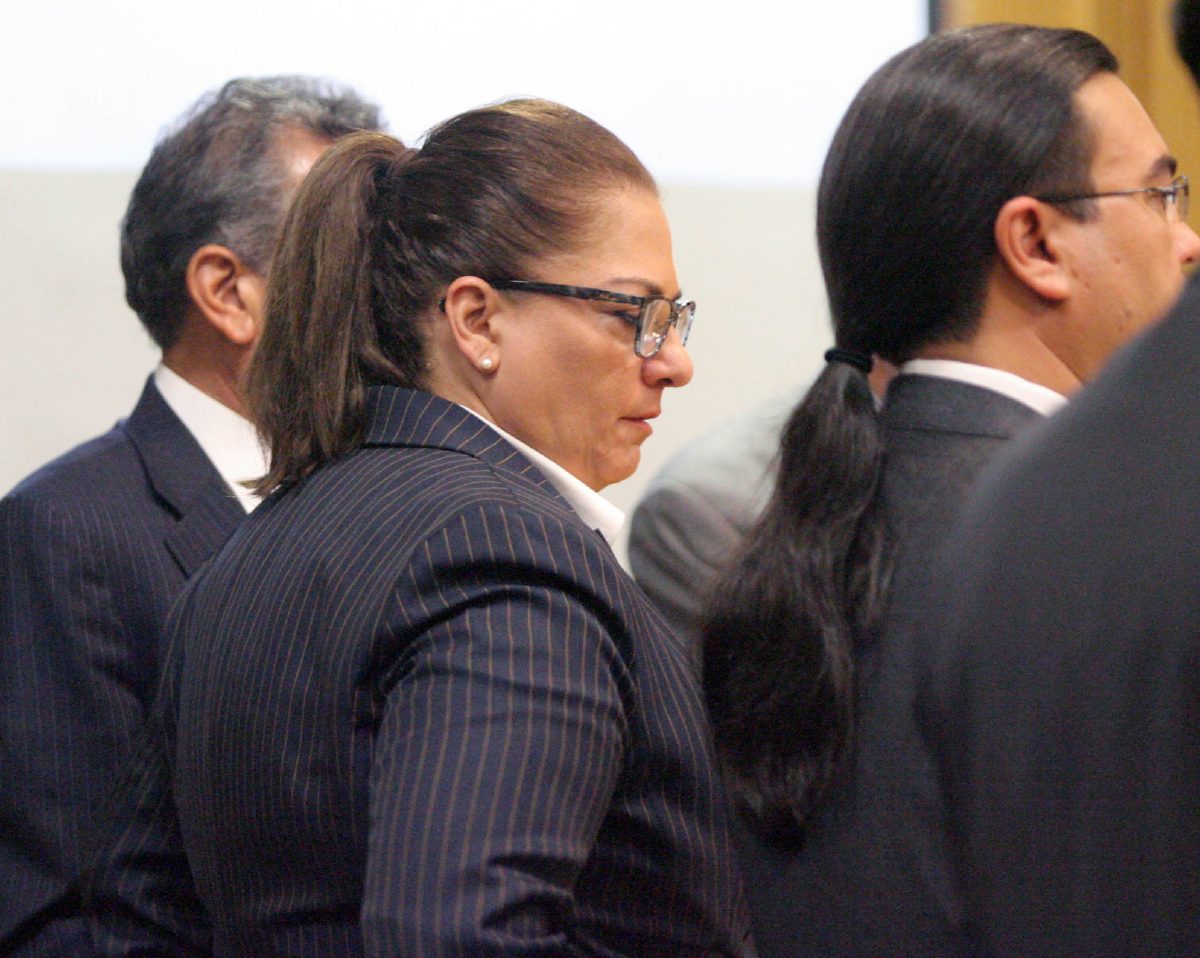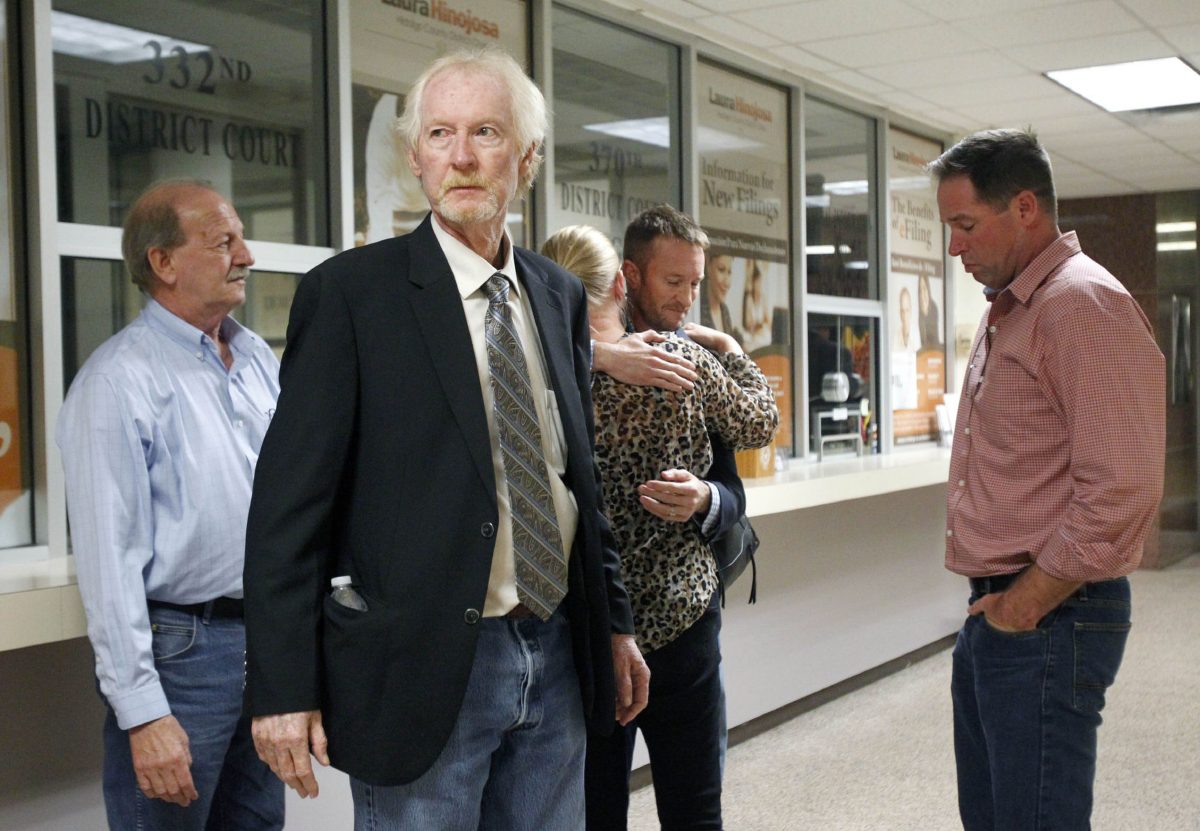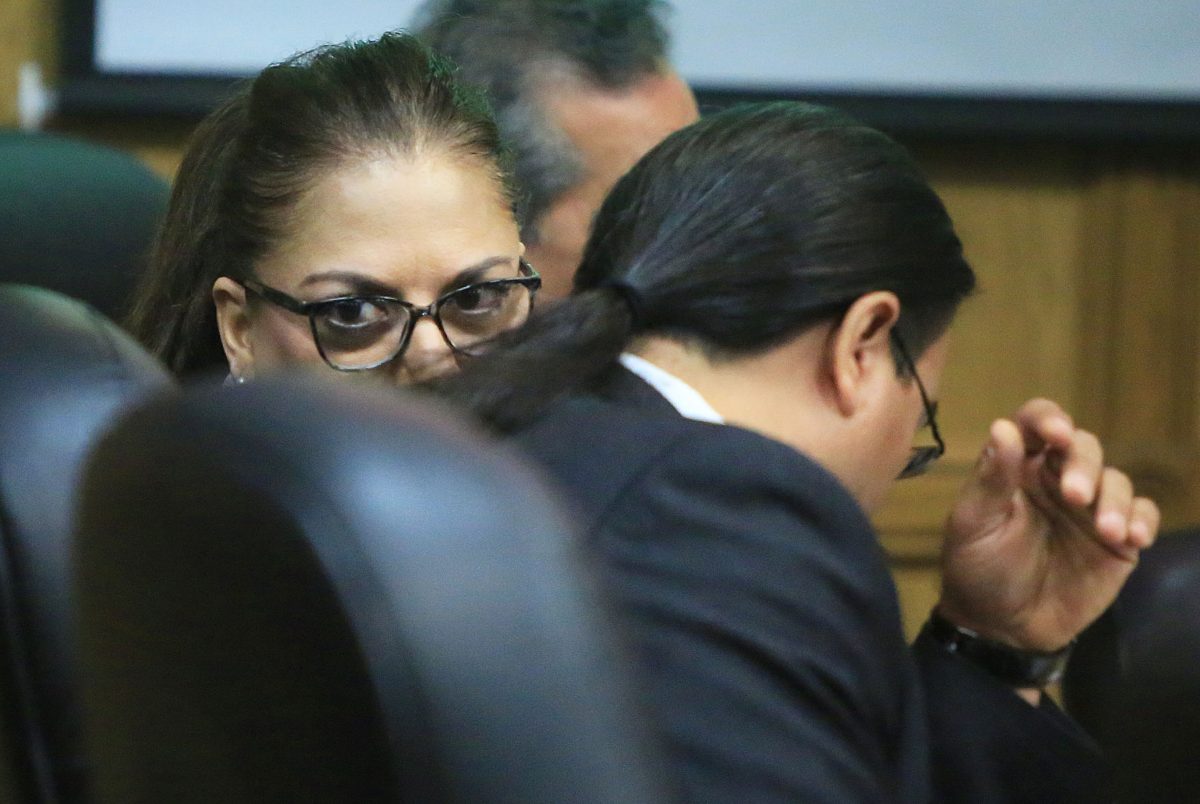EDINBURG — It took jurors just six hours of deliberation Wednesday to find Monica Melissa Patterson guilty of capital murder.
EDINBURG — It took jurors just six hours of deliberation Wednesday to find Monica Melissa Patterson guilty of capital murder.
Showing little emotion, the defendant remained composed as the verdict was read in the 370th state District Court just after 9:30 p.m. Wednesday, only hours after prosecutors and defense attorneys wrapped up their closing arguments in an exhaustive trial that saw nearly 50 witnesses called to the stand through about six weeks.
Patterson, 50, was also found guilty of one count of theft of more than $100,000 and less than $200,000; one count of misapplication of a fiduciary of more than $20,000 and less than $100,000; and one count of attempted theft of $200,000 or more.
The punishment phase of the trial will now begin Thursday, with the defendant facing an automatic sentence of life without the possibility of parole. Punishment for the other counts will be determined after jurors hear from witnesses during this next phase.
The former administrator for Comfort House, a McAllen-based nonprofit hospice, was on trial for the January 2015 murder of 96-year-old Martin Knell Sr. This was during her tenure as administrator of Comfort House, where Knell’s wife had been a patient prior to her death.
The courtroom was packed for Wednesday morning’s closing arguments from the prosecution and defense. Those in the gallery at that time included witnesses who previously took the stand — notably the lead investigators in the case and the housekeeper who reported the alleged murder to authorities.
Also on-hand for the closing arguments and verdict was the victim’s son, Martin Knell Jr., who said after learning Patterson’s fate that he was glad his father received justice.
Wednesday was also the first time jurors and courtroom spectators heard the defense’s argument, aside from cross-examinations. In fact, defense attorneys elected not to give an opening statement or call any witnesses to the stand.
In contrast, the prosecution called 47 witnesses.
Only defense attorney Fernando Mancias, one of four high-profile lawyers defending Patterson, commented after the verdict, saying, “It’s not over yet.”
The rest of the defense team — including Ricardo “Rick” Salinas, O. Rene Flores and Calixtro Villarreal, as well as Patterson’s appellate attorney Brandy Wingate Voss — declined to comment.
During its closing argument, the defense argued that Patterson assumed the role of Knell’s family, and that he was “alert, lucid, of sound mind” when he “willingly and freely” signed over power of attorney to the defendant and made her the executrix of his will. This was among the key elements of the prosecution’s argument that Patterson had a hand in murdering Knell to gain access to his estate.
“Marty Knell picked Mrs. Patterson because she allowed him to stay at home and she took care of (his wife) Penny,” Salinas argued, charging the victim’s family with trying to force him into a nursing home.
At one point, Salinas went so far as to imitate the victim: “My name is Marty Knell and I’m 96-years-old, but I can do jumping jacks, would you like to see that?… I don’t understand today’s generation; I don’t fit in anymore since I’m 96-years-old.”
Assistant Criminal District Attorney Joseph Orendain said Salinas’ imitation of Knell was insulting to the victim’s family in attendance Wednesday.
As they have done throughout the trial, the defense also cast Celestina Mascorro, the victim’s live-in housekeeper, as a suspect who they allege stole his money.
“If you don’t trust (Mascorro), that’s reasonable doubt,” Salinas told the jurors.
The defense highlighted how crime scene investigators found no evidence that “affirmatively linked Mrs. Patterson to committing any crime,” and called Knell’s cause of death into question, which the county’s forensic pathologist ruled asphyxiation by suffocation.
Defense attorneys instead argued that he died from sudden cardiac arrest.
“(You) can’t see sudden cardiac arrest at autopsy,” Flores said, making the same argument for asphyxiation. “If you can’t see it, you can’t rule it out. … How would (the pathologist’s) results change if it was revealed Celestina Mascorro lied?”
The defense also accused Mascorro of only going to authorities to report the alleged murder, which she waited nearly a month later to do, after she realized Adult Protective Services (APS) was investigating potential financial exploitation of Knell.
Orendain, however, was quick to respond in the state’s final rebuttal to the defense. The prosecutor said that Mascorro actually received the APS call while she was reporting the crime to the Texas Rangers.
“What prompted (Mascorro) to go to the office was that she couldn’t live with what she had seen,” Orendain said.
Noting that Patterson knew everything about Mascorro and her adult children, including where they lived, Orendain added, “Nobody knows how you’re going to act until you’re put in the situation.”
“I don’t know what’s in that head,” Orendain said of Patterson. “Why would you commit murder? Why would you steal from a hospice? Why would you owe $200,000 and some change to the IRS?”
He described Patterson as someone who lives “a lavish lifestyle that she needs to support and she doesn’t want to earn it.” Prosecutors attempted to prove as much throughout the trial, accusing her of using Comfort House funds to pay for a $20,000 high school graduation party for her son, and for covering the costs of several meals with friends, social gatherings and for personal expenses.
“The only way she could collect (on Knell’s money) is if he dies,” Assistant Criminal District Attorney Cregg Thompson argued during the prosecution’s closing argument.
Orendain said it was the defendant’s arrogance that led her to use Comfort House checks to write off expenses for her son’s party, not to mention inviting the nonprofit’s board members to said party.
As Orendain wrapped up his rebuttal, he took issue with the defense’s tactics during their cross-examinations, which he believed served to delay the trial.
“If you ask a question enough times, and you repeatedly beat it to death and keep someone on the stand, just repeatedly asking them the same question, you’re gonna get a different answer,“ Orendain said. “And that’s all they did — just beat ‘em and beat ‘em until they tried to get what they wanted.”
Prior to reaching a verdict, Salinas had told the jurors that they would “be the subject of ridicule” if they found Patterson not guilty and to “have the courage to do the right thing.”
After being found guilty, state District Judge Noe Gonzalez ordered that Patterson be taken into custody. She left the courthouse a little before 10:15 p.m. in the back of a sheriff’s office vehicle bound for the Hidalgo County jail.
This story was updated to correct information on two counts: misapplication of a fiduciary and attempted theft.







